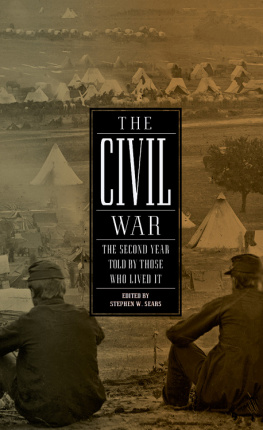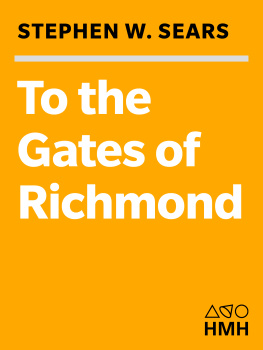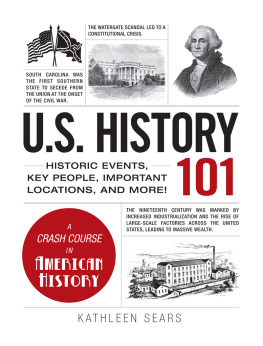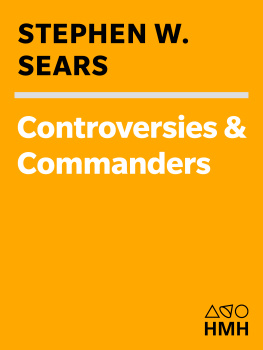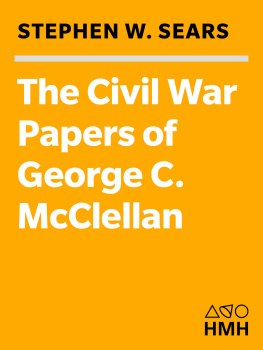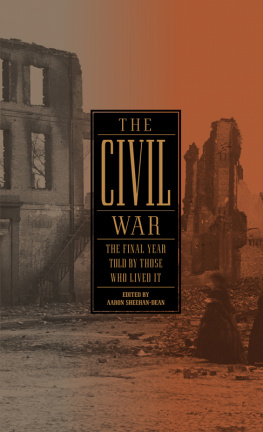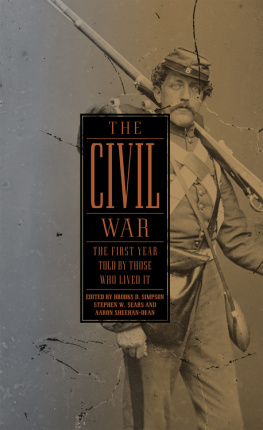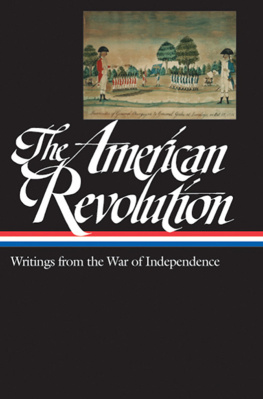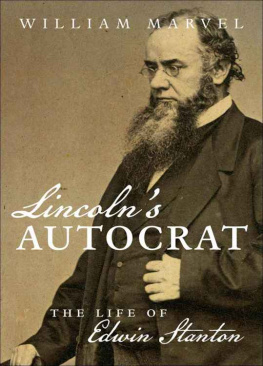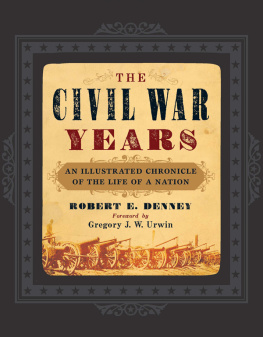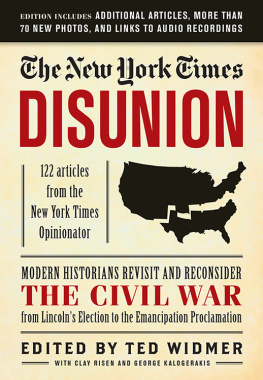
THE CIVIL WAR
THE SECOND YEAR TOLD BY THOSE WHO LIVED IT
Stephen W. Sears, editor

THE LIBRARY OF AMERICA
Volume compilation, preface, introduction, notes, and chronology copyright 2012 by Literary Classics of the United States, Inc., New York, N.Y.
All rights reserved.
No part of the book may be reproduced commercially by offset-lithographic or equivalent copying devices without the permission of the publisher.
Some of the material in this volume is reprinted by permission of the holders of copyright and publication rights. See on page 798 for acknowledgments.
Endpaper maps copyright 2012 by Earl B. McElfresh, McElfresh Map Company LLC.
THE LIBRARY OF AMERICA, a nonprofit publisher, is dedicated to publishing, and keeping in print, authoritative editions of Americas best and most significant writing. Each year the Library adds new volumes to its collection of essential works by Americas foremost novelists, poets, essayists, journalists, and statesmen.
If you would like to request a free catalog and find out more about The Library of America, please visit with your name and address. Include your e-mail address if you would like to receive our occasional newsletter with items of interest to readers of classic American literature and exclusive interviews with Library of America authors and editors (we will never share your e-mail address).
Print ISBN: 978-1-59853-144-2
eISBN 978-1-59853-175-6
First eBook Edition: March 2012
The Civil War:
The Second Year Told by Those Who Lived It is published with support from
THE ANDREW W. MELLON FOUNDATION
and
THE NATIONAL ENDOWMENT FOR THE HUMANITIES
Preface
Has there ever been another historical crisis of the magnitude of 186165 in which so many people were so articulate?
Edmund Wilson
T his Library of America volume is the second in a four-volume series bringing together memorable and significant writing by participants in the American Civil War. Each volume in the series covers approximately one year of the conflict, from the election of Abraham Lincoln in November 1860 to the end of the war in the spring of 1865, and presents a chronological selection of documents from the broadest possible range of authoritative sourcesdiaries, letters, speeches, military reports, newspaper articles, memoirs, poems, and public papers. Drawing upon an immense and unique body of American writing, the series offers a narrative of the war years that encompasses military and political events and their social and personal reverberations. Created by persons of every class and condition, the writing included here captures the American nation and the American language in the crucial period of their modern formation. Selections have been chosen for their historical significance, their literary quality, and their narrative energy, and are printed from the best available sources. The goal has been to shape a narrative that is both broad and balanced in scope, while at the same time doing justice to the number and diversity of voices and perspectives preserved for us in the writing of the era.
Introduction
P resident Lincoln began 1862 deeply troubled by the state of the Union, and on January 10 he called a group of advisors and generals to the White House. The President was greatly disturbed at the state of affairs, wrote one of his listeners, General Irvin McDowell. Spoke of the exhausted condition of the Treasury; of the loss of public credit; of the Jacobinism in Congress; of the delicate condition of our foreign relations; of the bad news he had received from the West... but, more than all, the sickness of General McClellan. The general-in-chief was laid low by typhoid fever, and if something was not done soon, said the President, the bottom would be out of the whole affair....
At the other White House, in Richmond, at a cabinet meeting in February, President Davis found the state of the Confederacy equally disturbing. By report, defenses were crumbling east and west, Attorney General Thomas Bragg entered in his diary. The Prest said the time had come for diminishing the extent of our linesthat we had not men in the field to hold them and we must fall back. Bragg wondered: Will the Govt endure? Can we repel the enemy? Dangers surround us & it commences at our darkest period since the war began.
During the year since the secession of eleven Southern states brought the nation to war with itself, the two presidents had struggled to build, shape, and direct the machinery of warnot a conventional war against a foreign power but a civil war that was by nature peculiarly claustrophobic. Jefferson Davis, for example, felt increasingly hemmed in by enemy incursions wherever he looked.
For Southerners the Union blockade of the Atlantic and Gulf coasts had grown through 1861 from a nuisance to a serious concern, and the Federals seizure of Port Royal Sound in South Carolina in November gained the blockaders an operational base. Further incursions on both coasts seemed certain in the new year. Confederate efforts in 1861 to wean the border state of Kentucky away from neutrality had resulted in the creation of a thin, largely undermanned defensive line across the state that President Davis discovered he lacked the resources to strengthen. Indeed, Attorney General Braggs gloomy outlook was brought on by the Yankees breaching this Kentucky line and pressing far up the Tennessee and Cumberland rivers. In the Trans-Mississippi the Rebels victory at Wilsons Creek in Missouri in August 1861 had not proved decisive enough to secure that border state for the South; certainly the fight would be renewed in 1862, and for Arkansas as well.
Daviss admission that he must draw in his lines applied most immediately to Virginia. The Souths stunning victory at Manassas in July 1861, and a second, lesser victory at Balls Bluff on the upper Potomac in October, had raised hopes for maintaining the Potomac as the Confederacys northern frontier. The new year dashed such hopes. Keeping Joseph E. Johnstons army at Manassas was no longer tenable in the face of the huge Yankee buildup of forces at Washington. Johnston must fall back to a safer posting. The Confederacy started 1862 on the defensive everywhere.
Lincoln might not feel hemmed in by enemy armies as was Davis, but still he was much constricted by an array of forces, domestic and foreign. His catalog of complaints that January 10 was real. As 1861 turned to 1862, the Union war machine was stalled, making it difficult for the Treasury to find money and credit to support it. The Congress that convened in December was dominated by radical Republicansto some they raised echoes of the Jacobins of the French Revolutionwho challenged the administrations war policies, a challenge given teeth by the investigative Joint Committee on the Conduct of the War. Relations with Great Britain had been badly strained in November when two Confederate envoys were taken off the British steamer Trent by U.S.S. San Jacinto. The envoys had since been released, but the administration still worried about possible European intervention in the conflict. Lincolns mention of bad news from the West referred to the continuing reluctance of his generals in the western theater to start moving.
One of the Presidents more challenging problems was General George B. McClellan. McClellandubbed the Young Napoleon by the presshad arrived with fanfare to pick up the pieces after the debacle at Manassas and to resuscitate the Army of the Potomac. On November 1 McClellan was named general-in-chief of all the Unions armies, replacing Winfield Scott. By the turn of the year, however, McClellan had worn out his welcome through his policy of stubborn inactivity. Confederate cannon closed commerce on the Potomac below Washington, and communications on the upper Potomac were interrupted, leaving the capital to suffer a humiliating partial blockade. McClellans sole remedial effort ended badly at Balls Bluff. The typhoid that rendered him hors de combat for some three weeks at the turn of the year brought these problems to a head. Lincoln remarked, according to McDowell, if General McClellan did not want to use the army, he would like to
Next page
